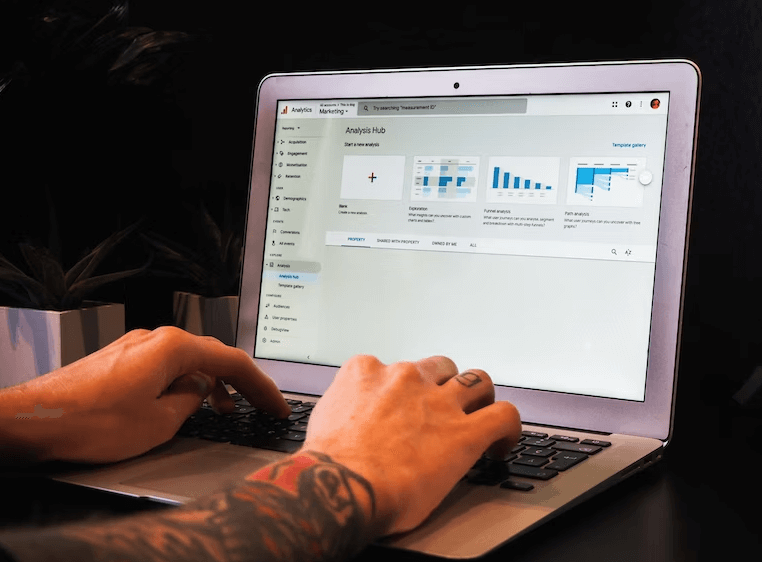Google Analytics is a web analytics tool that is designed to track and report website traffic. It is one of the most widely used analytics platforms on the internet, with millions of websites using it to gain insights into their website’s performance.
Google Analytics is a free service offered by Google that provides detailed statistics about a website’s visitors, including how they found the site, how long they stayed, and which pages they visited.
The platform has been around since 2005, and over the years, it has evolved to become a robust and sophisticated tool that offers a wide range of features and functionality.
In this article, we’ll explore what Google Analytics is, how it works, and why it’s important for businesses and website owners.
What Is Google Analytics?

Google Analytics is a web analytics service that tracks and reports website traffic. The platform allows website owners to understand how users interact with their website, including which pages are visited, how long users stay on the site, and where traffic is coming from.
This information can be used to optimize a website’s performance, improve user experience, and drive more traffic and revenue.
Google Analytics is a free service offered by Google, and it can be used by businesses of all sizes, from small startups to large corporations. The platform provides a wealth of information about website performance, including:
Traffic sources:
Google Analytics can show where website visitors are coming from, including search engines, social media platforms, and other websites.
User behavior:
Google Analytics can show which pages are most popular on a website, how long users spend on each page, and which pages have the highest bounce rates.
Conversion tracking:
Google Analytics can track a wide range of conversion goals, including product purchases, form submissions, and newsletter sign-ups.
E-commerce tracking:
For online retailers, Google Analytics can track sales data, including revenue, average order value, and transaction volume.
How Does Google Analytics Work?

Google Analytics works by using a tracking code that is added to the website’s HTML code. This tracking code collects data about user behavior on the site and sends it to the Google Analytics server for processing. The tracking code is unique to each website and is generated by Google Analytics when the website owner creates a new account.
Once the tracking code is installed on a website, Google Analytics can start collecting data about website traffic. The platform tracks a wide range of user behavior, including:
Pageviews:
The number of times each page on a website is viewed.
Unique visitors:
The number of individual users who visit a website.
Bounce rate:
The percentage of users who leave a website after viewing only one page.
Time on site:
The amount of time users spend on a website.
Traffic sources:
The sources of traffic to a website, include search engines, social media, and referral traffic from other websites.
All of this data is processed by Google Analytics and presented in an easy-to-use dashboard that can be accessed by the website owner.
The dashboard provides a wide range of reports and analytics tools that can be used to understand user behavior and optimize website performance.
Why Is Google Analytics Important?

Google Analytics is an essential tool for businesses and website owners who want to understand how users interact with their websites.
By tracking user behavior and website performance, Google Analytics can help businesses make data-driven decisions about website design, content, and marketing strategies.
Here are some of the key benefits of using Google Analytics:
Understand your audience:
Google Analytics can help you understand who is visiting your website, including their age, gender, location, and interests.
This information can be used to tailor your website content and marketing strategies to better meet the needs of your audience.
Improve website performance:
By tracking user behavior and website performance, Google Analytics can help you identify areas where your website could be improved. This could include identifying pages with high bounce rates, pages with low engagement, and pages with slow load times.
Armed with this information, you can optimize your website to provide a better user experience, which can lead to increased engagement, higher conversion rates, and more revenue.
Measure marketing ROI:
Google Analytics can help you measure the effectiveness of your marketing campaigns by tracking user behavior after they click on an ad or visit your website from a referral source.
This can help you determine which marketing channels are driving the most traffic and which are delivering the highest ROI.
Identify growth opportunities:
By tracking website performance over time, Google Analytics can help you identify trends and patterns in user behavior. This can help you identify areas where you can grow your website traffic, such as by targeting new markets or expanding your content marketing efforts.
Make data-driven decisions:
With Google Analytics, you have access to a wealth of data about your website and its performance.
By analyzing this data, you can make informed decisions about website design, content, and marketing strategies that are based on real-world user behavior.
Conclusion
Google Analytics is a powerful tool for businesses and website owners who want to understand how users interact with their websites. By tracking user behavior and website performance, Google Analytics can provide valuable insights that can help businesses make data-driven decisions about website design, content, and marketing strategies. With its robust features and easy-to-use interface, Google Analytics is an essential tool for a strategist who wants to optimize their website performance and drive more traffic and revenue.
Additional:
- What Is Google’s Penalty?
- What Is Google Indexing?
- What Is Google Trends?
- What Is Google Search Console?




